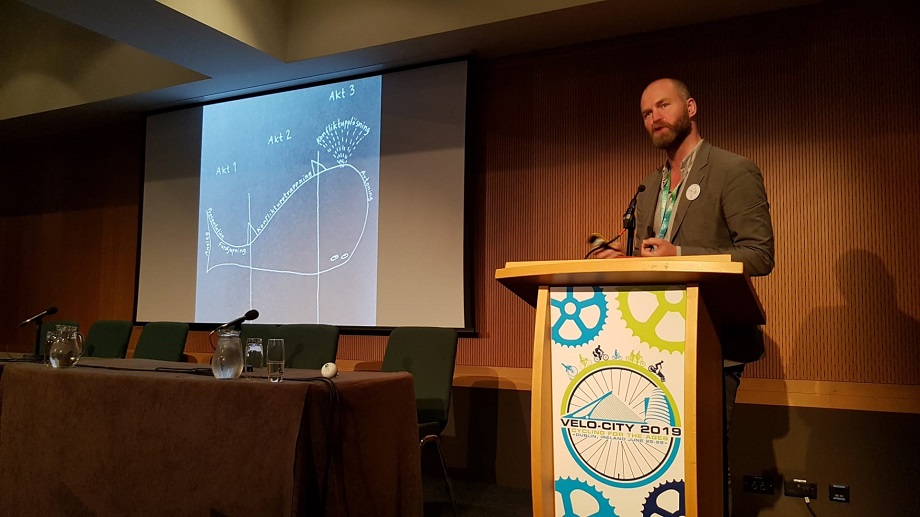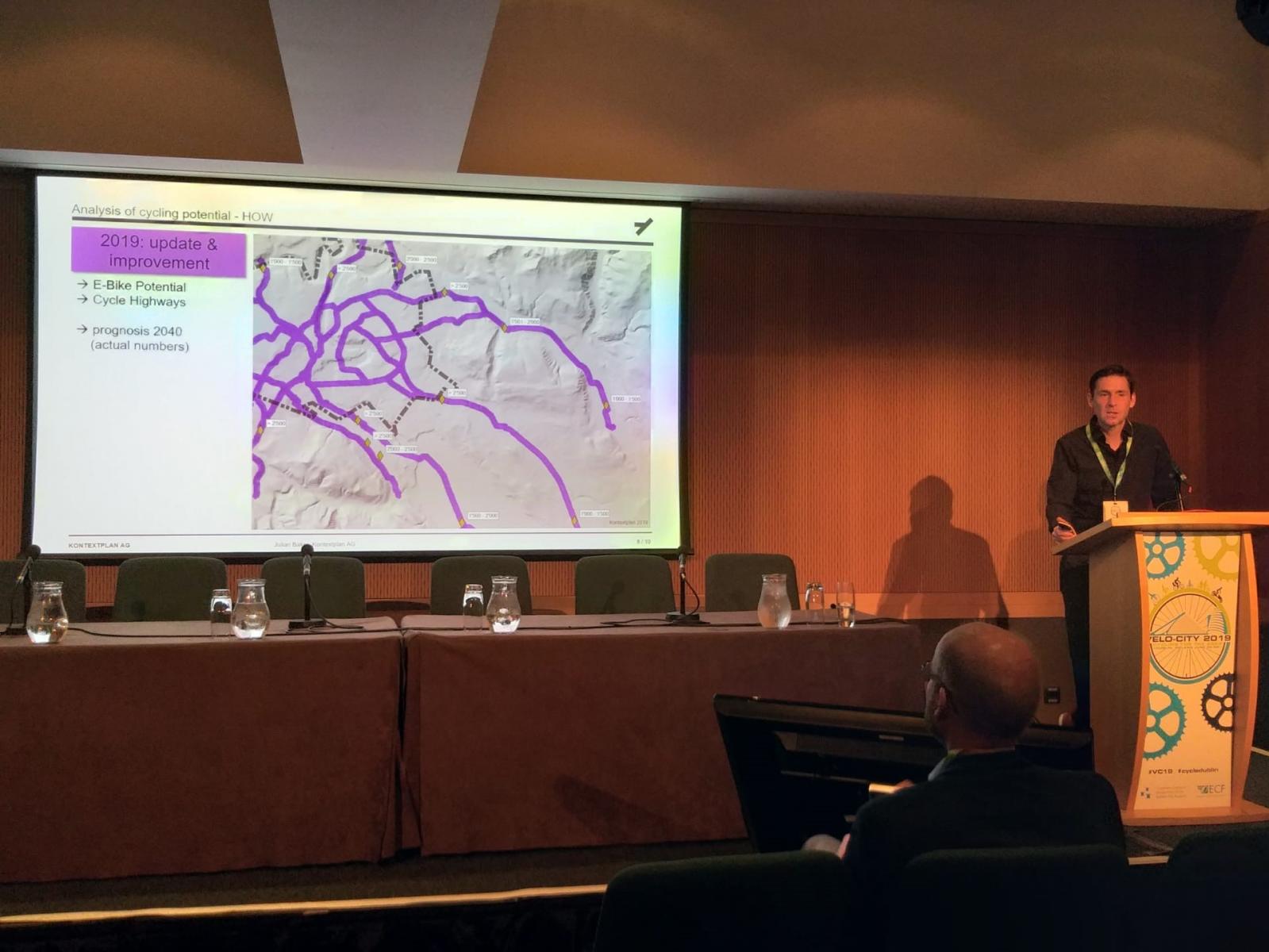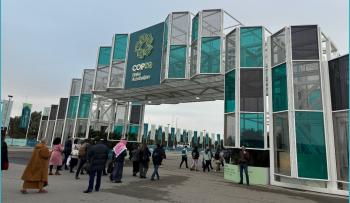
Money makes the world go round? Cycling and Funding
Four high-level speakers and an enthusiastic audience discussed how to raise funding for cycling at the ‘Cycling and funding’ session, Velo-city Dublin.
For example, The budget for cycling amounts to only 1.9% of the Swiss transport budget but the impact of the investment in cycling proves to be very efficient: cycling modal share in Switzerland is 5%.
Do we need more money for cycling or use the funding in a more effective way?
According to Julian Baker from Kontextplan AG the answer is a mixture of both: ‘We need to push for more funds but we should also use them in a more efficiency-focused way’.
Through an analysis of ‘cycling potential’ for the bike network in Bern, they have been able to increase the level of cycling up to 15% with a low budget but highly efficient results (e.g. taking away a car lane and putting a bicycle lane or updating the Master Plan for cycling in order to integrate the potential of e-bikes and cycle highways).
Can community cycling projects improve access to bikes and increase opportunities to cycle for all?
Pete Mills from Cycling Scotland presented ‘Cycle Friendly Communities’, an initiative that provides funding to support community groups on a  variety of themes in order to improve cycling conditions and contribute to behavioral change, with an impact on environment, health, economy and place making.
variety of themes in order to improve cycling conditions and contribute to behavioral change, with an impact on environment, health, economy and place making.
The match funding for these projects come from active travel funders, health organization, local authorities or volunteer contributions while Cycling Scotland deals with the applications processes.
‘It is a great opportunity for getting to know communities, to see the different challenges and address them by sharing knowledge and identifying new projects’ Pete Mills, Cycling Scotland said.
The long-term sustainability of the projects is also a key element of the work that Pete and Cycling Scotland try to address.
And during the session we also heard about successful national subsidies for cycling. The Swedish Government has subsidized with 35 million euro a year the direct purchase of e-bikes in Sweden after a successful campaign of ECF member organization Cykelfrämjandet. Lars Stromgren, President the Swedish Cycling Advocacy Association shared with us the secret of this success story:
As in a Hollywood movie, the story telling and the improvisation played a key role. ‘Advocates have to win people’s mind, wind friends and votes. Now in Sweden everyone knows someone who purchased an e-bike using this scheme, and it also open possibilities to -via CRM research- analyze how this group used the bike. Lars told us.
And the big money pot. Where is it?
‘It is closer than you might think’, Fabian Küster, Senior Policy Officer at the European Cyclists’ Federation (ECF) told the audience at Velo-city while presenting ECF’s 6 Billion Campaign.
This European initiative aims to ‘unlock the big pot of money’ available in the European Union budget (at a local, regional, national and European level) highlighting that most of the EU budget for cycling is not managed at the European level but closer to the citizens (e.g. regional governments).
Furthermore, Fabian launched a ‘call for cooperation’ in order to achieve that in the new programming period the budget available for cycling is enough to reach the objective to increase daily trips by bike in Europe from 160 to 240 million and invited the participant at the session to find out more about the EU Funds Observatory for cycling. Set up by ECF, the observatory includes information about all operational programmes in Europe where funding is allocated for cycling: ‘A great tool to identify where the money pot for cycling projects is’ Fabian said.
Network/Project Involved:
Contact the author
Recent news!
Upcoming events
Contact Us
Avenue des Arts, 7-8
Postal address: Rue de la Charité, 22
1210 Brussels, Belgium









